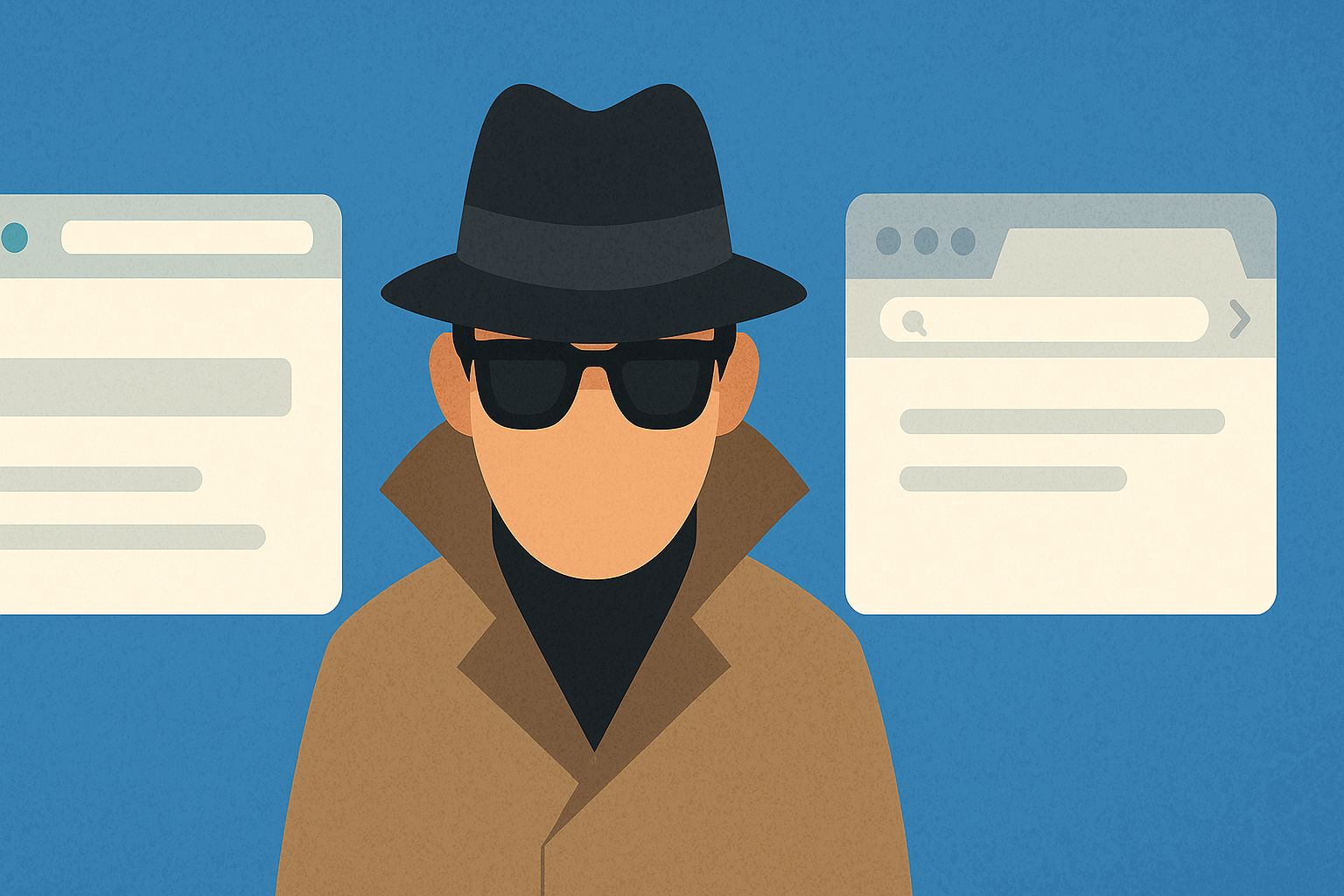- The Cyber Safety Newsletter
- Posts
- 🕵️♂️ The Truth About Private Browsing
🕵️♂️ The Truth About Private Browsing

“Incognito mode” sounds like you’re invisible. But are you really? Spoiler: Not even close.
Private browsing features—like Chrome’s Incognito Mode, Safari’s Private Browsing, Firefox’s Private Window, or Edge’s InPrivate Mode—are useful, but they don't deliver the anonymity many people assume. They’re great for keeping your browsing off your local device history—but they don’t hide you from websites, Wi-Fi networks, your employer, or your ISP.
Let’s break down what these modes really do, what they don’t, and how to protect your privacy more effectively.
✅ What Private Browsing Does
When you use private browsing mode, your browser:
🔹 Doesn’t save your browsing history
🔹 Deletes cookies and site data when the window is closed
🔹 Doesn’t retain search entries, passwords, or form data
🔹 Lets you log in to multiple accounts (e.g. Google or Facebook) in separate tabs
These features are great for quick privacy wins—like looking up surprise birthday gifts, signing into shared computers, or troubleshooting websites.
❌ What Private Browsing Does NOT Do
Despite the name, private browsing does NOT make you anonymous on the internet. Here’s what it doesn’t hide:
🚫 Your IP address – Websites, advertisers, and trackers still know your location and can identify you across sessions.
🚫 Your activity from your internet provider (ISP) – Your browsing traffic is still visible to your ISP.
🚫 Your identity from your employer or school – If you're using work/school networks, they may track your internet use.
🚫 Tracking from some websites – While cookies are wiped, advanced fingerprinting techniques can still identify your device.
🚫 What you download or bookmark – Files stay on your device even after the private window closes.
💡 A Google support article makes this clear:
“Your activity might still be visible to: websites you visit, your employer or school, and your internet service provider.”
— Google Support: What Incognito Mode Does
🧠 Common Misconceptions
🔹 “No one can see what I’m doing if I use Incognito.”
False. It only hides your activity from people using your device. Others on the same network (or who manage your internet) can still monitor you.
🔹 “It hides my identity.”
Not really. Your IP address is still exposed, and many sites use device fingerprinting and login cookies to re-identify you even in private mode.
🔹 “It’s the same as a VPN.”
Not even close. A VPN encrypts your traffic and masks your IP address across all apps—not just your browser. Incognito mode only affects local browser data.
🔒 What To Use Instead (or In Addition)
If your goal is true privacy or anonymity, consider these upgrades:
🔐 Use a VPN
This encrypts your internet traffic and hides your IP address from websites, your ISP, and network admins.
🧼 Use privacy-focused browsers
Try Brave, Firefox, or DuckDuckGo Browser, which include built-in tracker blockers and fingerprint protection.
🧹 Regularly clear cookies and site data
Even outside private browsing, deleting your history and cookies helps reduce persistent tracking.
Want to learn more tips for personal cyber safety? Subscribe or read past issues at:
👉 https://newsletter.thecybersafety.company
Have a topic you'd like us to cover?
📬 Email me directly at [email protected]
Until next time — stay private, stay safe.
— Peter Oram
Chief Cyber Safety Officer
FOLLOW US ON SOCIAL MEDIA


